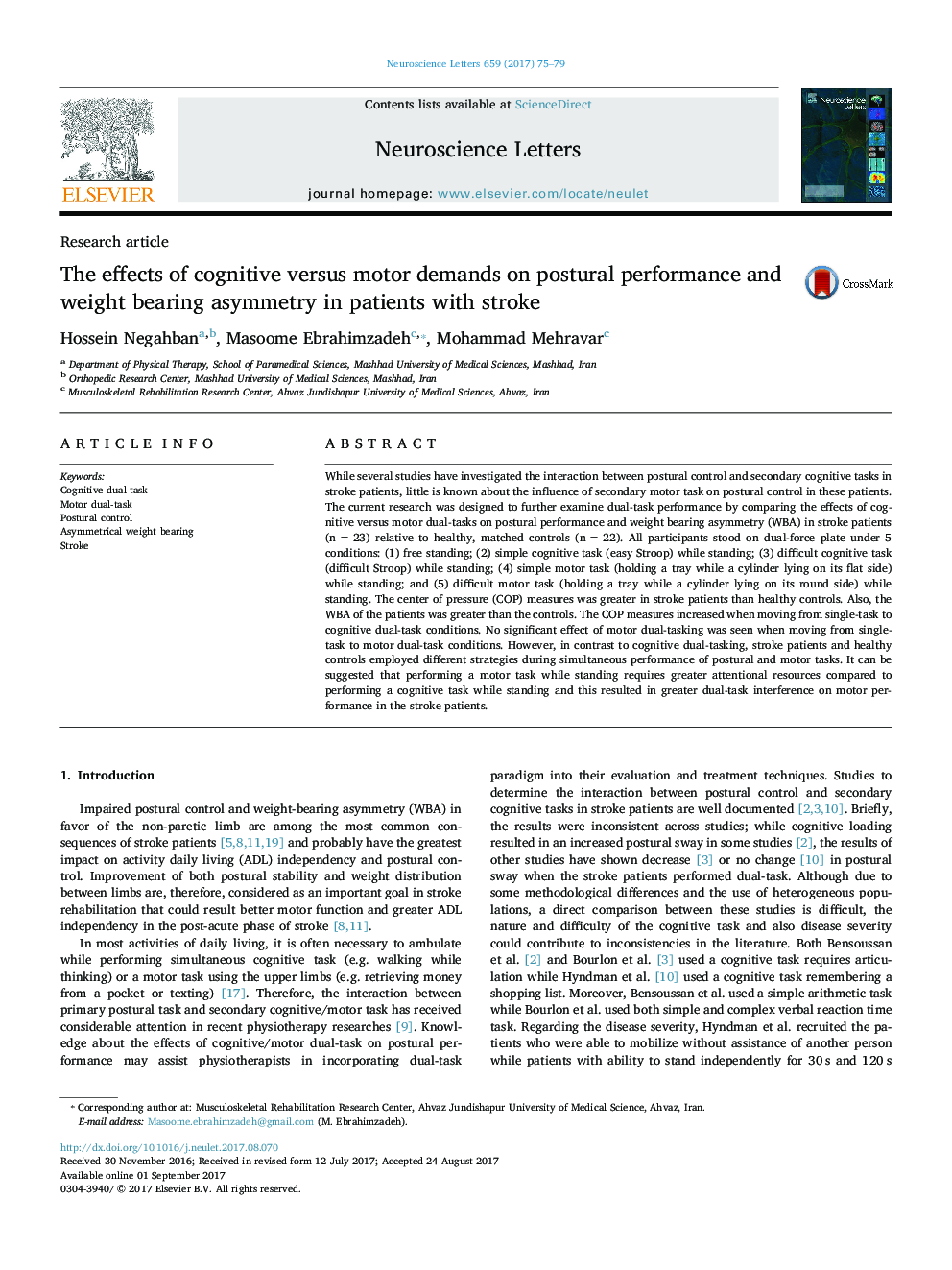| کد مقاله | کد نشریه | سال انتشار | مقاله انگلیسی | نسخه تمام متن |
|---|---|---|---|---|
| 5738176 | 1615040 | 2017 | 5 صفحه PDF | دانلود رایگان |
- More sway and more asymmetry weight were observed in stroke patients than controls.
- Decreased postural sway was observed when moving from cognitive to motor dual-task.
- Dual-task interference on motor performance was observed only in stroke patients.
- Motor dual-task requires greater attentional resources than cognitive dual-task.
While several studies have investigated the interaction between postural control and secondary cognitive tasks in stroke patients, little is known about the influence of secondary motor task on postural control in these patients. The current research was designed to further examine dual-task performance by comparing the effects of cognitive versus motor dual-tasks on postural performance and weight bearing asymmetry (WBA) in stroke patients (n = 23) relative to healthy, matched controls (n = 22). All participants stood on dual-force plate under 5 conditions: (1) free standing; (2) simple cognitive task (easy Stroop) while standing; (3) difficult cognitive task (difficult Stroop) while standing; (4) simple motor task (holding a tray while a cylinder lying on its flat side) while standing; and (5) difficult motor task (holding a tray while a cylinder lying on its round side) while standing. The center of pressure (COP) measures was greater in stroke patients than healthy controls. Also, the WBA of the patients was greater than the controls. The COP measures increased when moving from single-task to cognitive dual-task conditions. No significant effect of motor dual-tasking was seen when moving from single-task to motor dual-task conditions. However, in contrast to cognitive dual-tasking, stroke patients and healthy controls employed different strategies during simultaneous performance of postural and motor tasks. It can be suggested that performing a motor task while standing requires greater attentional resources compared to performing a cognitive task while standing and this resulted in greater dual-task interference on motor performance in the stroke patients.
Journal: Neuroscience Letters - Volume 659, 17 October 2017, Pages 75-79
